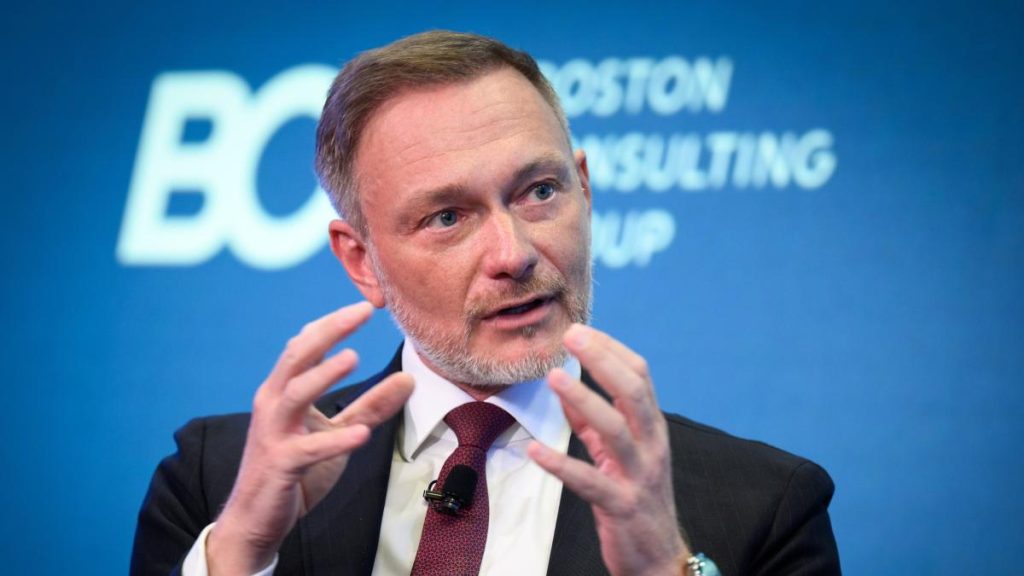German Finance Minister Christian Lindner believes that there is not enough work being done in Germany. He stated that the problem facing the German economy is not a lack of public investment, but rather a deficit in the number of hours worked per year. Lindner made these comments at the Spring Meeting of the International Monetary Fund in Washington on Thursday. He pointed out that in countries like Italy, France, and elsewhere, people work significantly more hours than in Germany. Lindner attributed this to regulations on working hours, demographics, and the prevalence of involuntary part-time work due to a lack of childcare options. He called for reforms in addition to reducing bureaucracy and providing tax incentives for business investments.
Lindner emphasized that many of the measures he proposed for an economic turnaround would not require additional spending, but would actually save money in the state budget and social insurance systems. He argued that when people work more or work at all, they pay higher taxes and social contributions, and rely less on social benefits. In his view, alongside reducing administrative barriers and providing tax incentives for business investments, labor market reforms are necessary to address the deficit in working hours in Germany. He highlighted the importance of addressing obstacles such as part-time work due to insufficient childcare options as well as other issues related to demographics and regulations on working hours.
Additionally, Lindner set a goal of doubling the so-called potential growth of the German economy within two to three years. Potential growth refers to the growth of the economy when all capacities are fully utilized, without taking into account short-term economic fluctuations. At present, this potential growth is less than one percent, whereas ten years ago it stood at 1.5 percent. Lindner’s aim is to increase this rate significantly through his proposed reforms and initiatives. By boosting potential growth, Germany can achieve sustainable economic expansion and improve the overall competitiveness of its economy on a global scale.
Furthermore, Lindner stressed the importance of implementing structural reforms to enhance economic productivity and efficiency. He highlighted the need for a shift towards a more labor-intensive growth model, as well as the importance of attracting and retaining skilled workers in various sectors of the economy. Lindner emphasized that investing in training and education, as well as improving the business environment to encourage innovation and entrepreneurship, are key priorities in promoting sustainable economic growth. By focusing on these areas, Germany can overcome the challenges it faces in terms of workforce participation and productivity, and position itself for long-term success in a rapidly changing global economy.
In conclusion, Lindner’s call for increased working hours and productivity in Germany underscores the urgent need for reforms to address the current deficits in the labor market and economy. Through a combination of reducing bureaucracy, providing tax incentives for investments, and implementing labor market reforms, the Finance Minister aims to boost economic growth and competitiveness in the country. By doubling the potential growth rate of the economy and implementing structural changes to enhance productivity and efficiency, Germany can overcome its current challenges and achieve sustainable growth in the years to come. Lindner’s vision for a “Wirtschaftswende” reflects his commitment to driving economic transformation and prosperity in Germany through targeted policy initiatives and reforms.


